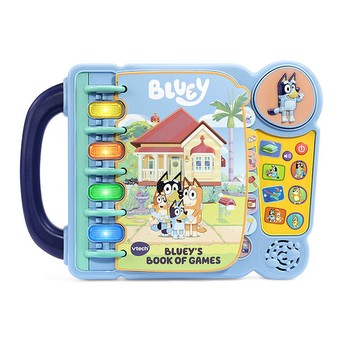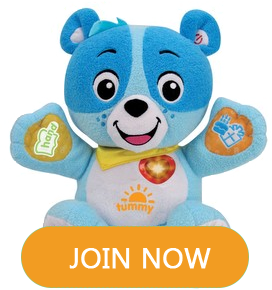Why Join VTech Club?
Joining is free, fast and full of great benefits, such as:
- Promotions and offers
- Monthly £1,000 prize draw*
- Regular competitions
- Special offers for our members
Added benefits
- Register your VTech products
- Apply to be a Product Tester
-
Shop
AgeBaby MonitorsBy BrandMore Ways To Shop
- Brands
-
Downloads
Learning LodgeLearning Lodge AppsIOS AppsAndroid AppsDigiart
-
Parents
VTech Club Sign-up
- Customer Support
Consumer ServicesAbout VTechFirmware UpdatesContact Us - Customer Support
Shop
Age
Baby Monitors
By Brand
More Ways To Shop
Brands
Downloads
Learning Lodge
Learning Lodge Apps
IOS Apps
Android Apps
Digiart
Parents
VTech Club Sign-up
Parenting
Community
Customer Support
Consumer Services
About VTech
Tutorials
Firmware Updates
Contact Us

3-6
YEARS
Bluey’s Book of Games
£29.99
Temporarily out of stock
Developmental Benefits

Hand Eye Coordination

Imaginative Play

Imitative Play

Motor Skills

Problem Solving
Developmental Benefits
Bluey’s Book of Games

- Aiming and concentrating on a target improves hand/eye coordination.
- Humans have highly developed manual dexterity skills that distinguish them from any other species on this planet. This manual dexterity emerges during the infant’s first year and, with plenty of opportunities to manipulate and play with toys and objects, becomes a highly tuned ability. Babies will reach and grasp for objects in an uncoordinated manner from an early age. As they begin to gain control over their movements infants succeed in reaching for and grasping toys. The first attempts by babies to grasp toys in their hands involve using the palm of their hand with all their fingers around the object. As development occurs through physical maturation and plenty of opportunities to play with toys, grasping becomes more sophisticated. The use of the opposable thumb and index finger allows infants to pick up very small objects in what is termed a ‘pincer grasp’. This finely tuned motor skill emerges at the end of first year of life.
The development of hand and eye coordination skills continues throughout childhood where opportunities to play games that require children to manoeuvre objects, build tall towers or hit targets on a computer screen facilitate the development of finely-tuned hand and eye coordination.

- Imagination and exploration through interaction with characters.
- Children’s imagination is active from an early age. Imaginative play has links to what psychologists call ‘social pretend play’. Young children pretend or imagine that, for instance a wooden block is a cake and they carefully ‘cut’ it. A large proportion of pretend play tends to be social. Imaginative play begins when infants play and pretend with adults. As young children develop they begin to try to engage other children in social pretend play. Young children in nursery benefit from engaging in imaginative play. It helps them to begin to understand that other children think differently to them and have different ideas.<br /> Children can engage in imaginative play with other children where they have agreed on a story or scenario that they want to act out. Young children playing with toys use their imagination to invent scenarios and play out the consequences. They can use characters to explore scenarios and act out scripts such as going shopping or bedtime. Imaginative and social pretend play is beneficial for children as it allows them to explore different ways of viewing the world. Children who use their imagination when playing with other children are increasing their social competence and their understanding of other people. In a study where we observed children playing in a nursery we found that young children engaged in imaginative play, often using the toys in unexpected ways. Children’s imagination benefits from the opportunity to play with all types of toys.

- Copying observed action encourages social and emotional skills.
- Imitation begins very early in an infant’s life. Young children learn socially from older children and adults by copying them. Imitative play is a fundamental part of learning; young children watch adults and then copy them extensively. Throughout their early years children are learning to adapt to the cultural world into which they have been born. Imitative play allows children to experiment with the cultural tools and behaviour that they have observed. Children try to use laptops, phones and any other electronic device available to them because they have seen adults using and interacting with these devices. Young children’s manual dexterity and hand and eye coordination is well adapted for using mobile phones and other devices. Children can benefit from having replica items available, such as an infant laptop or an imitation mobile phone. These electronic items can enhance manual skills, hand and eye coordination and spatial skills.<br /> Imitative play requires children to observe and copy other’s behaviour. Sometimes children watch another child performing an action but don’t copy the action immediately. Lots of imitative play occurred in our nursery school study where we observed children playing with VTech toys. Children learn through observing and copying others. Young children watch other children and observe the consequences of actions without having to perform the actions themselves. This can help with social and also motor skills. A young child in our nursery study watched another child press a button on a toy to play some music and then jig up and down. After wandering off the young child who had observed the jigging returned to the toy pressed the button and began to jig up and down to the music. Children learn from each other as they play. Imitative play allows for lots of repetition which is also a valuable learning activity.

- Encourages fine motor skill development.
- An infant’s growth and development in the first year of life is rapid. Many movements that young babies make are in preparation for the next stage of their development. When young babies watch a mobile they are constantly moving their head, arms, legs and even their mouths in response to the movement of the toy. Sound and movement attract a baby’s attention; if a toy is placed almost within reach of babies their movements become more animated. Bath toys provide opportunities to develop and use motor skills to great effect. For example, a young baby has greater control over their leg movements than their arms. You will often see young babies in a bath reaching with their legs towards a floating toy and kicking. All these movements strengthen muscles in readiness for the next stage - walking.<br /> As babies develop they become more adept at grasping objects. Young infants learn to grasp an object, for instance a cube. The grasping, at first, is quite clumsy but through repetition, and across time, infants become adept at grasping and develop fine motor skills. Infants first use the ulnar grasp where their fingers close against the palm when trying to hold an object. Within another month they are able to move the object from hand to hand. After the first year, infants adopt the ‘pincer grasp’ where they use their thumb and index finger to grasp even very tiny objects. Shape sorters help infants to fine tune their visual perception and hand coordination. Soon infants are building towers with two cubes; this also requires fine coordination skills. As the child grows computer games have been shown to help with hand and eye coordination. Spatial skills can also be enhanced when playing games that require concentration, quick responses and finely tuned motor skills.

- Develops logic skills and strategic thinking through memory.
- Babies become increasingly adept at solving problems as their motor skills become more finely tuned. Problem solving in infancy and childhood is about directing attention towards a goal and behaving in such a way as to achieve a successful outcome. For instance, a young infant who sees an adult hide a toy under a blanket will cease to look for it whereas an older infant will pull away the blanket to reveal the toy. These types of actions are the foundations of problem solving behaviour. Babies and children love games where they have to find a hidden object; they can have fun and at the same time increase their problem solving capabilities.<br /> Babies love to explore and experiment with the world. At the end of the first year infants are exploring the features of objects by handling and playing with them in new ways. For instance, when babies are trying to fit a block through a hole they will twist, turn and push it until it fits through the space. Babies are also expanding their problem solving skills by learning to look for objects in more than one place. Adults can help with the development of problem solving in young children by directing attention to the potential solution to a problem. As children grow they learn to direct their attention and plan their actions. Thinking about actions ahead of time and planning what do next is all part of problem solving. Playing games, whether it is on a computer or with another person can enhance problem solving skills.
- Play pretend with Bingo and Bluey using things found around their house; seven interactive pages showcase adventures from the show
- Press the Bluey, Bingo, Dad and Mum buttons to hear phrases about each character
- Explore Bluey and Bingo’s favourite games and hear their voices in Story, Play Together, Music and Follow the Leader modes
- Chunky carrying handle lets kids easily take the pretend play on the go
- Teaches pretend play, cause & effect, music & creative play
Best for ages:
3 to 6 Years
Highlights
The playful pups love playing pretend using objects around the house! Want to play?
Description
The playful pups love playing pretend using objects around the house! Want to play? Choose from 4 different activities. In Story mode, Bluey wants to show you her favourite pretend-play games. Each page features a different game for you to explore together. Help Bluey find the four things needed to play each game in Play Together mode. Add sound effects to the melodies by pressing the four colourful buttons in Music mode or Bluey will ask you to find things in a specific order in Follow the Leader mode. Large Bluey button triggers familiar phrases. Hear Bingo introduce their parents and herself by pressing the Bingo & Dad and Mum buttons.
- Product Number: 80-541203
- Customer Support
- Learning Lodge on
macOS 10.15 - FAQs
- Contact Us
- Product Safety Message
- Privacy Policy
- Cookie Statement
- Vulnerability Disclosure Policy
- Delivery Detail
- Website Terms & Conditions
- Learning Lodge Terms & Conditions
- Kid Connect and KidiConnect Terms and Conditions
- eWaste & Battery Recycling
- Product Warranty
- Returns Policy
- Modern Slavery Statement
- Right to Erasure Request Form
- Site Map
- About VTech
- Expert Panel
- Careers
- Sustainability
- Tax Strategy
- Climate Positive Workforce
- VTech Global
- VTech Canada
- VTech US
- VTech Phones

©2025 VTech Electronics, All Rights Reserved.



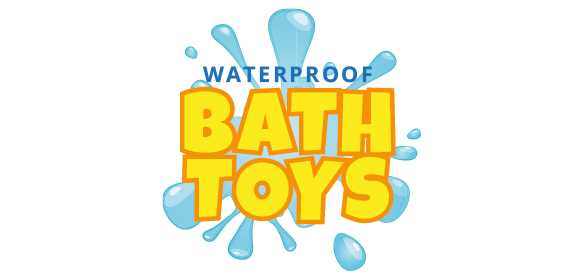
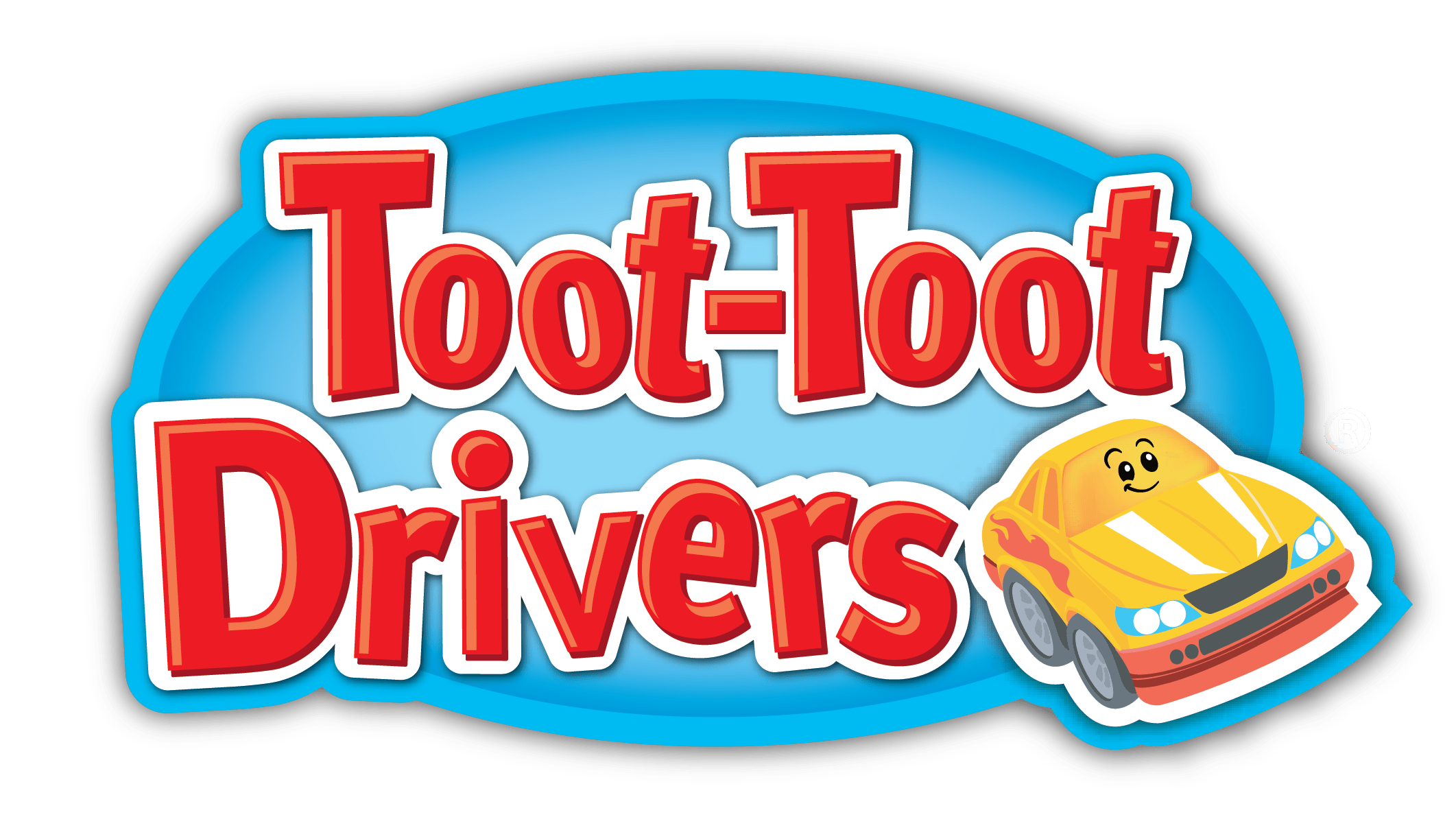



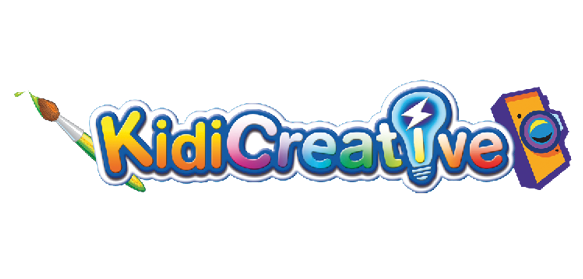

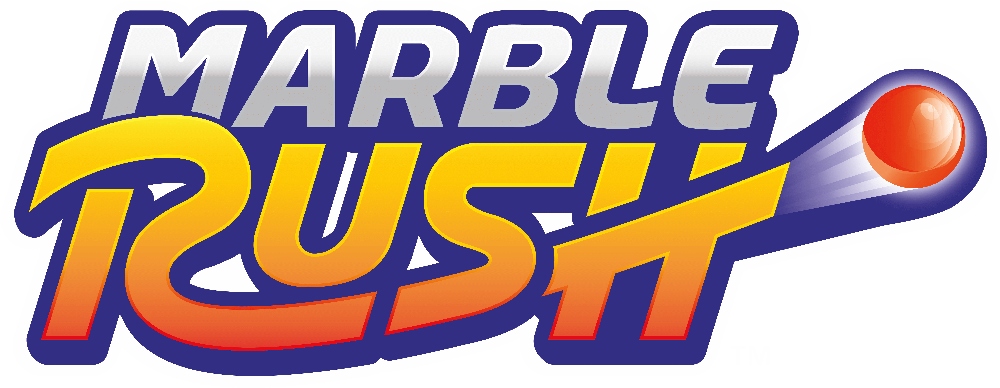
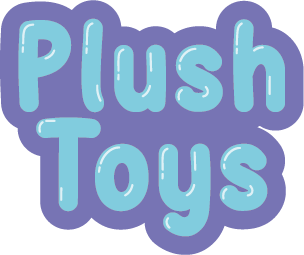

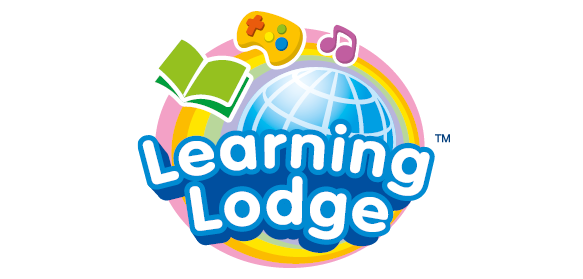 Download
Download

